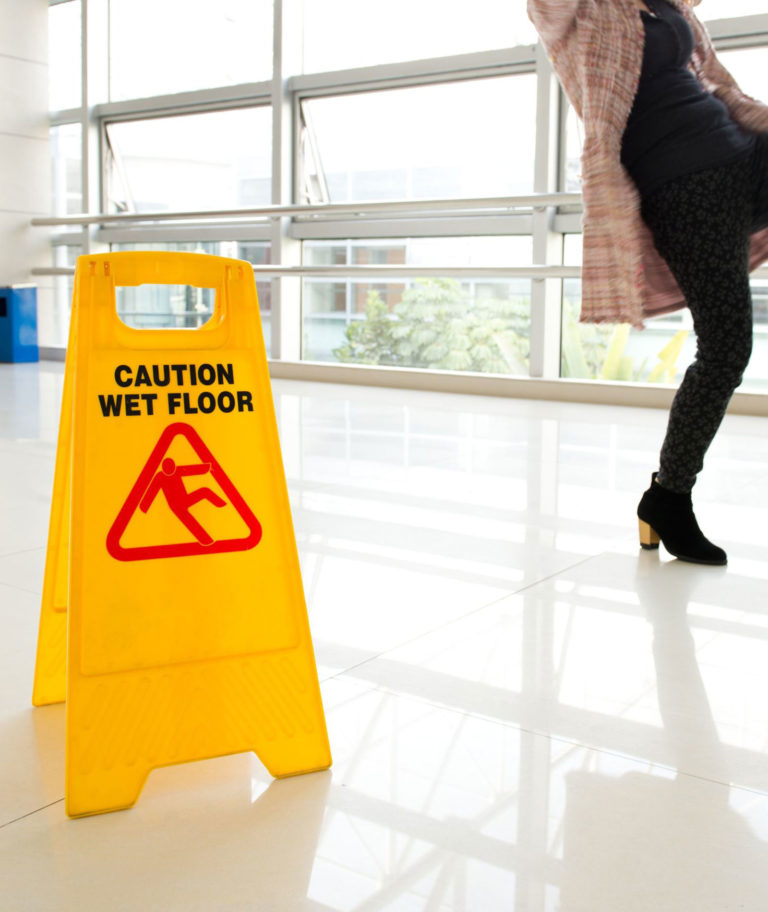Understanding Soft Tissue Injuries from Slip and Fall Accidents in West Palm Beach

Slip and fall accidents can result in various injuries, with soft tissue injuries being among the most common. Understanding these injuries, their impact, and how to address them is crucial for individuals pursuing claims in West Palm Beach. This blog post provides an overview of soft tissue injuries from slip and fall accidents, including their types, symptoms, and steps for seeking compensation.
What Are Soft Tissue Injuries?
Soft tissue injuries involve damage to muscles, tendons, ligaments, and other non-bony structures. Unlike fractures or broken bones, soft tissue injuries can be less visible but often cause significant pain and functional impairment. Common types of soft tissue injuries include:
- Sprains: Injuries to ligaments, the tissues connecting bones at a joint. Sprains occur when ligaments are stretched or torn, often leading to swelling, bruising, and pain.
- Strains: Injuries to muscles or tendons, the tissues connecting muscles to bones. Strains result from overstretching or tearing these tissues, causing pain, stiffness, and limited movement.
- Bruises (Contusions): Results from impact or trauma, causing blood vessels under the skin to break and bleed. Bruises can lead to pain, swelling, and discoloration.
- Tendonitis: Inflammation of tendons, often due to repetitive strain or injury. Tendonitis causes pain, swelling, and restricted movement in the affected area.
- Bursitis: Inflammation of bursae, small fluid-filled sacs that cushion joints. Bursitis causes pain and swelling in the affected joint.
Symptoms of Soft Tissue Injuries
Soft tissue injuries may present various symptoms, including:
- Pain: Ranging from mild to severe, often exacerbated by movement or pressure.
- Swelling: Caused by fluid accumulation in the injured area.
- Bruising: Discoloration due to internal bleeding.
- Stiffness: Reduced range of motion and difficulty moving the affected area.
- Tenderness: Sensitivity to touch or pressure in the injured area.
Diagnosing and Treating Soft Tissue Injuries
Medical Evaluation: Seek medical attention to diagnose and treat soft tissue injuries. A healthcare professional will conduct a physical examination and may use imaging tests, such as MRI or ultrasound, to assess the extent of the injury.
Treatment Options:
- Rest: Allowing the injured area to heal without further strain.
- Ice: Applying ice to reduce swelling and pain.
- Compression: Using bandages or wraps to minimize swelling.
- Elevation: Keeping the injured area elevated to reduce swelling.
- Medication: Taking pain relievers or anti-inflammatory drugs as prescribed.
- Physical Therapy: Engaging in rehabilitation exercises to restore strength and mobility.
Pursuing Compensation for Soft Tissue Injuries
- Documenting Injuries: Keep detailed records of your injuries, including medical reports, treatment plans, and any impact on your daily life. Documentation is essential for supporting your claim.
- Collecting Evidence: Gather evidence related to the slip and fall accident, such as photographs of the scene, witness statements, and the accident report. This evidence helps establish liability and the connection between the accident and your injuries.
- Consulting an Attorney: Work with a personal injury attorney experienced in handling slip and fall cases. They can help you navigate the legal process, negotiate with insurance companies, and represent you in court if necessary.
- Filing a Claim: Your attorney will assist in filing a personal injury claim, seeking compensation for medical expenses, lost wages, pain and suffering, and other damages related to your soft tissue injuries.
Common Challenges in Soft Tissue Injury Claims
- Proving the Injury: Soft tissue injuries may not be immediately visible, making it challenging to prove their severity. Detailed medical records and expert testimony are essential.
- Chronic Symptoms: Soft tissue injuries can lead to long-term or recurring symptoms. Documenting ongoing issues and their impact on your life is crucial for obtaining fair compensation.
- Insurance Disputes: Insurance companies may contest the extent or cause of your injuries. Strong evidence and legal representation can help address these disputes effectively.
Conclusion
Understanding soft tissue injuries from slip and fall accidents in West Palm Beach is essential for effectively managing and pursuing compensation for these injuries. By seeking prompt medical care, documenting your injuries, and working with an experienced personal injury attorney, you can navigate the complexities of your claim and seek fair compensation for your pain and suffering. Addressing these injuries thoroughly and promptly ensures a better chance of a successful resolution to your case.

 Call Us Today - It's Free
Call Us Today - It's Free